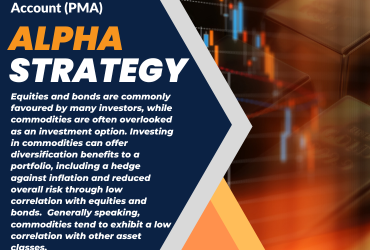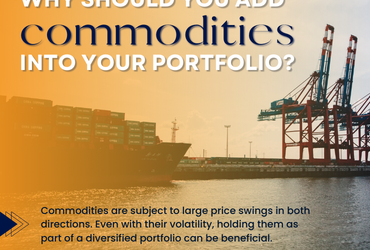
When investors are interested in ESG-themed (Environmental, Social, and Governance) investments, there are several sectors they can consider for their investments. These sectors have gained attention due to their strong alignment with ESG principles and the potential for both financial returns and positive impact.
This article delves into the main/primary sector allocations within the FTSE4Good Bursa Malaysia Index (F4GBM) and the FTSE4Good Bursa Malaysia Shariah Index (F4GBMS). For the latest review period of June 2023, the F4GBM Index comprises a total of 98 constituents. Simultaneously, the F4GBMS Index consists of 77 constituents. Both indices are reviewed semi-annually in June and December against international benchmarks.
| Number of Constituents in | ||||
| Sector (by alphabetical order) | FTSE4Good Bursa Malaysia Index | Weightage (%) | FTSE4Good Bursa Malaysia Shariah Index | Weightage (%) |
| Construction | 1 | 1% | 1 | 1% |
| Consumer Products & Services | 13 | 13% | 11 | 14% |
| Energy | 8 | 8% | 6 | 8% |
| Financial Services | 15 | 15% | 4 | 5% |
| Health Care | 4 | 4% | 4 | 5% |
| Industrial Products & Services | 11 | 11% | 9 | 12% |
| Plantation | 5 | 5% | 5 | 6% |
| Property | 9 | 9% | 9 | 12% |
| Real Estate Investment Trusts | 2 | 2% | 1 | 1% |
| Technology | 14 | 14% | 14 | 18% |
| Telecommunications & Media | 6 | 6% | 5 | 6% |
| Transportation & Logistics | 6 | 6% | 5 | 6% |
| Utilities | 4 | 4% | 3 | 4% |
| 98 | 100% | 77 | 100% | |
Source: Bursa Malaysia, compiled by PCM
The five leading ESG sectors in Malaysia are as follows:
- Financial Services
The Financial Services sector (including Banks) in Malaysia plays a crucial role in promoting good governance practices and ethical behaviour. Transparent financial reporting, responsible lending, and ethical investment practices contribute to the governance and social aspects of ESG. Financial institutions also have the opportunity to support sustainable development through responsible financing and investment decisions.
- Technology
Many Tech names in Malaysia earn strong ESG ratings from investor research and ratings firms mainly due to their low-emissions footprint. In addition to that, Tech is strategically aligned with emerging ESG investment trends, including Electric Vehicles, Semiconductors, Artificial Intelligence, Biotechnology, and other related themes.
- Consumer Products & Services
Companies in the Consumer Products & Services sectors that prioritise sustainable sourcing, ethical production, and fair labour practices demonstrate a commitment to ESG principles. Efforts to reduce waste, promote recycling, and offer environmentally friendly products contribute to the environmental aspect of ESG.
- Industrial Products & Services
Certain industrial companies have exposures to the Technology/Semiconductor industries, which stand to gain from the rising trends mentioned earlier. Separately, some metal/chemical companies such as PMETAL and PCHEM are among the constituents of F4GBM and F4GBMS Index. PMETAL is seen as an indirect beneficiary of the global push towards decarbonisation as aluminium is the preferred metal of use in the EV and solar photovoltaic (PV) sectors. PCHEM has an established framework and internal policies in driving its ESG commitments. Sustainability KPIs were introduced in top management performance appraisals.
- Property
Numerous property projects are actively engaged in promoting sustainable development. This includes reducing carbon emissions by incorporating EV charging stations, water-efficient fittings to optimise water consumption, using sustainable/eco-friendly materials and more. Moreover, there are some publicly listed companies that specialise in affordable housing, aligning favourably with the social aspect of ESG principles.
Not in the Top 5 list (yet) is the Utilities Sector. Despite comprising only 4 constituents in F4GBM and 3 constituents in F4GBMS, we believe that this sector holds considerable untapped potential. Malaysia’s push towards renewable energy, including solar, wind, and hydropower, showcases its commitment to reducing carbon emissions and mitigating climate change. Investing in renewable energy aligns with both environmental and social aspects of ESG, as it reduces reliance on fossil fuels and provides cleaner energy sources while creating job opportunities.
Additionally, the Plantation and Energy Sectors are not part of the aforementioned Top 5 in the F4GBM and F4GBMS lists. Some plantation and energy names have been under scrutiny due to its environmental impact, including deforestation and habitat destruction. Nevertheless, efforts aimed at enhancing the sustainability of these sectors, including the commitment to stricter environmental regulations, underscore a dedicated emphasis on ESG principles. Additionally, improving labour conditions in the plantation sector (especially) contributes to the social component of ESG.
Overall, while the Top 5 ESG sectors in Malaysia undoubtedly shine as beacons of sustainable practices and responsible governance, it is important not to overlook other sectors like Utilities, Plantation, and Energy. These sectors, although not prominently featured in the Top 5 rankings currently, still hold significant potential for ESG-conscious investors. Efforts towards sustainability, adherence to stringent regulations, and the exploration of innovative approaches collectively highlight the commitment of various sectors to align with ESG principles. As the investment landscape continues to evolve, keeping an open mind to the untapped potential within these sectors could yield both financial returns and a positive impact on the broader ESG agenda. Finally, we view that with the rising popularity of ESG considerations, an increasing number of companies will intensify their efforts to enhance their ESG profiles. This proactive approach is likely to lead to greater inclusion in the index in the times ahead.
Identify investment opportunities – Phillip Managed Account for Retirement (PMART) and Phillip Managed Account (PMA) ESG
Phillip Capital Malaysia offers discretionary portfolio that invests in stocks with high ESG ratings from the F4GBM and F4GBMS Indices, namely PMART and PMA ESG. There are both conventional and Shariah options available. PMART and PMA ESG is suitable for investors who want to optimise the risk-adjusted return by constructing a diverse sustainable portfolio of ESG companies.
To explore the companies in which both Conventional and Shariah ESG mandates invest, you can refer to the provided link. We like these companies because they have received high ESG ratings, which we believe can contribute to their long-term sustainability, responsibility, and profitability.
Please click on the link to learn more or email us at cse.my@phillipcapital.com.my if you require any further information.
Disclaimer:
The information contained herein does not constitute an offer, invitation or solicitation to invest in Phillip Capital Management Sdn Bhd (“PCM”). This article has been reviewed and endorsed by the Executive Director (ED) of PCM. This article has not been reviewed by The Securities Commission Malaysia (SC). No part of this document may be circulated or reproduced without prior permission of PCM. This is not a collective investment scheme / unit trust fund. Any investment product or service offered by PCM is not obligations of, deposits in or guaranteed by PCM. Past performance is not necessarily indicative of future returns. Investments are subject to investment risks, including the possible loss of the principal amount invested. Investors should note that the value of the investment may rise as well as decline. If investors are in any doubt about any feature or nature of the investment, they should consult PCM to obtain further information including on the fees and charges involved before investing or seek other professional advice for their specific investment needs or financial situations. Whilst we have taken all reasonable care to ensure that the information contained in this publication is accurate, it does not guarantee the accuracy or completeness of this publication. Any information, opinion and views contained herein are subject to change without notice. We have not given any consideration to and have not made any investigation on your investment objectives, financial situation or your particular needs. Accordingly, no warranty whatsoever is given and no liability whatsoever is accepted for any loss arising whether directly or indirectly as a result of any persons acting on such information and advice.






